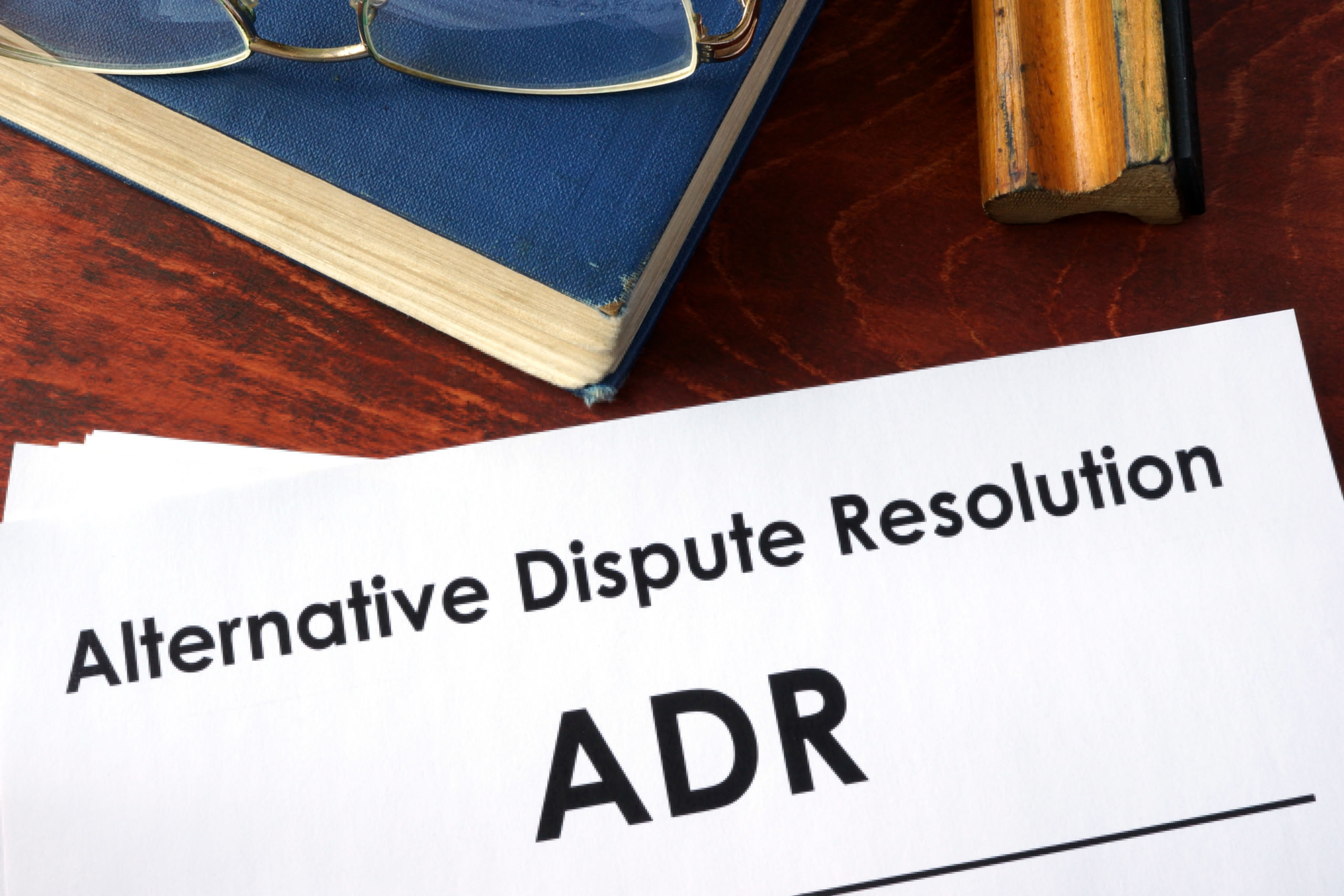Navigating the intricate terrain of FINRA arbitration demands a keen understanding of its procedures and regulations. As disputes within the financial industry come under the purview of FINRA's Dispute Resolution Program, mastering the selection of arbitrators, staying updated on rule changes, and strategizing for employment law claims become paramount. This CLE webcast offers a deep dive into these crucial aspects, providing attendees with indispensable insights for achieving success in FINRA arbitration.
Demystifying FINRA Arbitration: Navigating Disputes with Confidence
Ahmed Zidan2024-09-16T17:54:10-04:00The financial landscape is continuously shaped by the evolving regulations imposed by the Financial Industry Regulatory Authority (FINRA). All disputes by or between member firms and associated persons are subject to arbitration before FINRA’s Dispute Resolution Program, though for certain statutory employment law claims, the parties can opt out of arbitration. FINRA’s arbitration presents a unique forum where the parties must abide by and navigate the relevant (Customer or Industry) Code of Arbitration Procedure, and practitioners must stay abreast of the latest developments to formulate effective arbitration strategies. Join our speakers in this CLE webcast as they delve into a comprehensive discussion on the process of selecting arbitrators, recent changes in the Code, and some things to consider when arbitrating an employment law claim.
Recent Trends and Key Issues in FINRA Arbitration and Enforcement
Marvin Monzon2023-11-13T16:52:10-05:00FINRA Arbitration: Current Issues and Practice Tips for 2023
lazupardo2023-05-18T01:05:40-04:00Following the controversial ruling by Georgia State Court on the Wells Fargo arbitration award in 2022, the Financial Industry Regulatory Authority (FINRA) is now pushing for a more transparent arbitration procedure. FINRA's new proposed rule change with the Securities and Exchange Commission (SEC) is aimed at improving the prevailing practices in the arbitration and resolution forum. While the FINRA arbitration landscape remains uncertain until the approved rule changes, practitioners must keep themselves abreast of any developments to mitigate potential drawbacks.
Latest Updates on FINRA Arbitration Rules: Effective Litigation Strategies Explored
jordan2023-11-15T15:37:23-05:00The Financial Industry Regulatory Authority (FINRA) continues its heightened regulation of crowdfunding platforms, trading volume overstatements, and digital signature forgery. Several policy initiatives also remain concerning complex product trading and “restricted firm” designations. Notably, FINRA recently proposed a new set of rule changes that aim to impose austere requirements for registered representatives seeking the expungement of customer disputes.
Alternative Dispute Resolution in the Construction Industry: Emerging Trends and Developments
Joenel2022-12-25T22:22:02-05:00The economic disruptions brought by the COVID-19 pandemic, along with recent court cases, have triggered waves of issues in the construction industry.
Construction Disputes: Strategies and Best Practices to Manage Complexities and Challenges
Iwork OJT2022-09-29T01:53:38-04:00Construction claims, which typically arise from disagreements, failed obligations, or violations on construction contracts, can be challenging and time-consuming. Failure to effectively manage and resolve such disputes can have a profound effect on a project’s lifecycle and deter good relationship between parties.
Winning Strategies During Trials: What You Need to Know and Consider
Iwork OJT2022-10-28T01:13:38-04:00The increasing complexity of commercial litigation remains evident as regulatory changes and judicial developments continue to reshape the landscape. More significantly, the expected surge of COVID-19 related litigation filings underscores the need for organizations and their lawyers to be well-equipped in approaching potential disputes and trials. Time-tested trial techniques will become even more important as courts begin to drive their docket backlogs to trial over the next year.
International Arbitration: Practical Tips and Best Strategies
Iwork OJT2022-10-28T02:00:25-04:00International arbitration has historically been considered a cheaper and faster way than litigation to settle disputes. However, some question whether that remains true today in light of the so-called “due process paranoia,” where tribunals allow too much procedural latitude at the expense of additional time and cost to the parties. Before choosing international arbitration as a resolution method, in-house counsel need to understand the current pros and cons of this dispute resolution method. And with an ever-evolving backdrop, litigators need up-to-date knowledge and strategies to gain favorable results for their clients, including understanding the different international arbitration regimes, how best to research potential arbitrators’ backgrounds, best practices for framing the matter to the tribunal, cost-effective and results-driven discovery techniques, and data protection and enforcement of settlement arrangements.
How to Manage and Resolve Complex Commercial Disputes: A Practical Guide
Iwork OJT2021-07-28T21:56:01-04:00With sweeping regulatory and market changes that continue to affect organizations, commercial disputes are also emerging with increased complexity. Thus, it is becoming more imperative for businesses to be well-equipped in managing and resolving these conflicts.
FINRA Arbitrations: A Comprehensive Guide for 2020 and Beyond
Iwork OJT2021-07-19T04:30:55-04:00New regulatory and legislative developments continue to reshape the Financial Industry Regulatory Authority (FINRA) arbitration landscape. One of the sweeping changes today is FINRA’s temporary shift to remote operations and virtual arbitrations in response to the ongoing COVID-19 pandemic. Proper planning and assessment of the "new normal" must be carefully considered by practitioners to avoid the pitfalls which virtual hearings may entail. Other significant updates include FINRA’s overhaul of its Membership Application Program (MAP) rules and the Securities and Exchange Commission’s (SEC’s) approval of FINRA rule setting a minimum fee for brokers’ expungement request.
Securities Arbitration: Hot Buttons Explored
TKG2021-05-17T21:49:01-04:00The securities arbitration and mediation landscapes have been continuously reshaped with rule changes and regulatory enforcements causing complexity for defendants and plaintiffs alike. Furthermore, with the majority of hearings being conducted virtually, issues on security and confidentiality added a significant challenge in the prosecution of current cases.
Litigating and Arbitrating Construction Disputes: Tips, Tools and Strategies
TKG2021-08-20T03:53:09-04:00Construction claims are considered as one of the most complex types of dispute. Because of its complexity, involved parties oftentimes choose between litigation and arbitration as a dispute resolution tool.
A Practical Guide to Employee Arbitration Agreements: What You Need to Know
TKG2021-03-31T11:53:36-04:00Over the past years, employee arbitration agreements have been helpful in preventing employment-related lawsuits. If properly executed, arbitration clauses provide several benefits to both employers and employees. These benefits include the resolution of claims away from the public, the ability to select the arbitrator, and the faster process by which conflicts are resolved. Arbitration of claims is also significant in redirecting employment-related cases from overburdened courts.
FINRA Arbitration: Current Issues and Practice Tips for 2022
John Patrick2022-09-12T05:53:15-04:00As part of its mandate to ensure that investors and regulators have the information they need regarding broker-dealer operations, the Financial Industry Regulatory Authority (FINRA) continues to initiate significant efforts in improving the expungement framework. One of the top priorities in its anticipated regulatory notice is to revisit the proposed policy changes for the expungement processes, particularly concerning the rules for specialized arbitration panels. It underscores the need for arbitrators to look closely at any FINRA developments to develop an effective litigation strategy.















